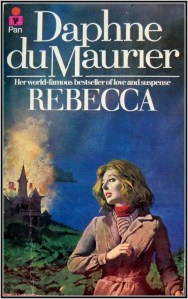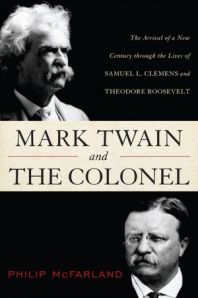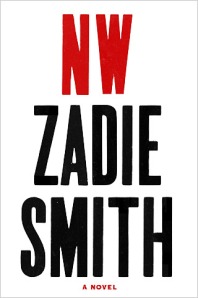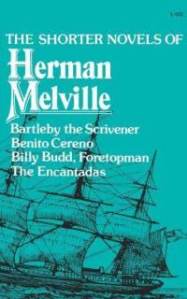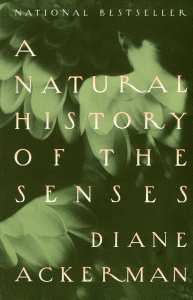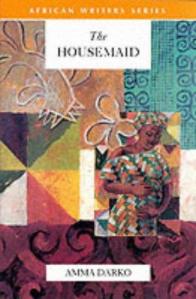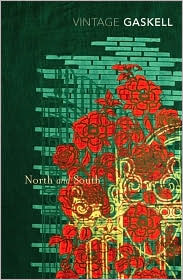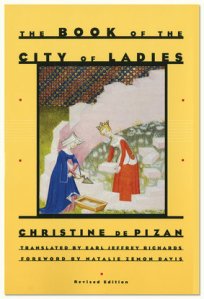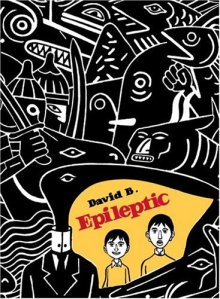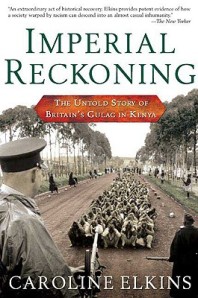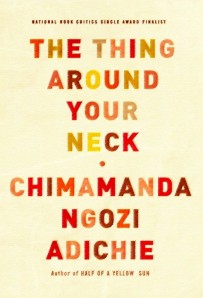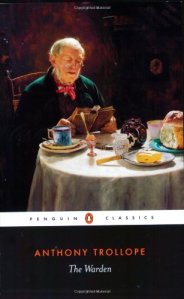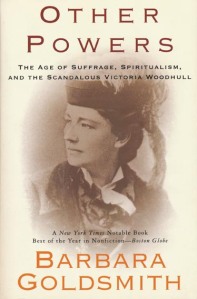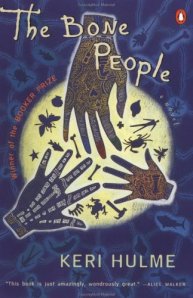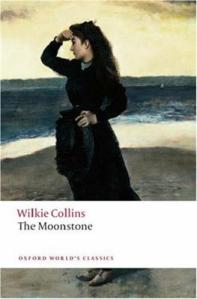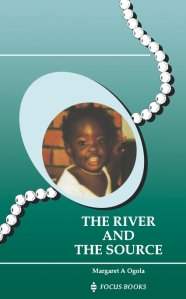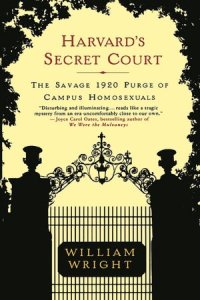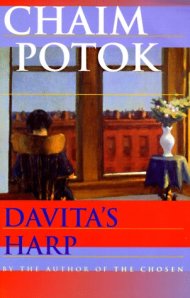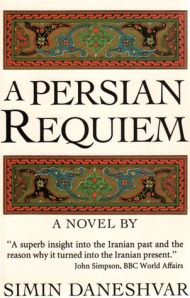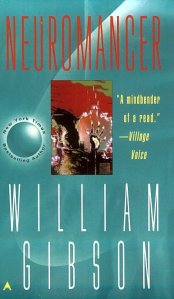Poetry!
ALRIGHT! So poetry is a genre I’ve had very little experience with, but I’ve enjoyed the collected works of Emily Dickens and plenty of one-offs recently, so have been slowly pulled into its orbit. This year I’d like to make a concerted effort to explore poetry more fully. I’m not going to set myself a specific goal or challenge or anything, but here’s a list I’ve been compiling for a while of poetry that interests me. I think I’ll start with something akin to a novel-in-verse, as narrative poetry is the kind that’s been most compelling to me thus far, and then dabble!
The Rime of the Ancient Mariner, by Samuel Taylor Coleridge
Dante’s Inferno, by Dante Alighieri
Aurora Leigh, by Elizabeth Barrett Browning
The World Doesn’t End, by Charles Simic
The War Poems, by Wilfred Owen
The Wasteland, by T.S. Eliot
Leaves of Grass, by Walt Whitman
Ariel, by Sylvia Plath
The Collected Poems, by Langston Hughes
The Country Between Us, by Carolyn Forché
The Moon is Always Female, by Marge Piercy
The Fact of a Doorframe, by Adrienne Rich
The Great Fires, by Jack Gilbert
Map of the Lost, by Miriam Sagan
The Poetry of Pablo Neruda, by Pablo Neruda
A Village Life, by Louise Glück
Emplumada, by Lorna Dee Cervantes
The Black Automaton, by Douglas Kearney
Life on Mars, by Tracy K. Smith
Voices, by Lucille Clifton
Breaking Poems, by Suheir Hammed
Citizen, by Aaron Shurin
Smith Blue, by Camille T. Dungy
Pretty Tilt, by Carrie Murphy
As I’ve said though, I’ve had very little exposure to poetry and so I don’t really know where to start. This list is incomplete and only a rough jumping-off point. Now that I’m looking at it all typed out, I realize that it’s made up almost entirely of works by European and American poets, which is unsatisfactory. Clearly, I need to do some more pointed research, and will be updating this list as I go. General recommendations are greatly appreciated, and specific ones for poets from non-Western countries are even more so!
Do you have a favorite poet? Collection? Single work? Let me know!
Year’s End/New Year’s Post 12/13
The good news is that my reading has really picked up these last few months and lot of it has been great! The bad news is I’ve posted about NONE of it but since my only new year’s resolution is NOT TO WORRY ABOUT IT, here’s me not worrying about it and settling for a few multi-mini-review recaps this January instead. In the meantime, here are my favorite reads of 2012. There aren’t a lot of them but the ratio is good considering how little I read this year. Some of them haven’t been reviewed yet but will be included in afore-mentioned mini-reviews to come, so will be linked later, memory permitting. In no particular order, books I loved this year were:
Fiction:
Wizard of the Crow, by Ngugi wa Thiong’o
The Moonstone, by Wilkie Collins
Caramelo, by Sandra Cisneros
Rebecca, by Daphne du Maurier
The Snow Child, by Eowyn Ivey
(Honorable mentions to:)
Under the Net, by Iris Murdoch
The Bone People, by Keri Hulme
A Persian Requiem, by Simin Daneshvar
So Far From God, by Ana Castillo
Birds of a Lesser Paradise: Stories, by Megan Mayhew Bergman
Non-Fiction:
Other Powers: The Age of Suffrage, Spiritualism, and the Scandalous Victoria Woodhull, by Barbara Goldsmith
Imperial Reckoning: The Untold Story of Britain’s Gulag in Kenya, by Caroline Elkins
So…how well did I fulfill my reading goals and challenges for last year? NOT THAT WELL! Let me count the ways.
A Year of Feminist Classics–I read one book, which was The Book of the City of Ladies, by Christine de Pizan, months after discussion had lapsed.
Kinna’s Africa Challenge—I actually did okay on this one since there was no specific book count and it overlapped with another of my own personal projects, which was to read Kenyan authors in preparation for the trip I took last August. The Housemaid, by Amma Darko, Imperial Reckoning, by Caroline Elkins, The Thing Around Your Neck, by Chimamanda Ngozi Adichie, The River and the Source, by Margaret Ogola, and Wizard of the Crow, by Ngugi wa Thiong’o all counted toward this challenge.
Read and Resist Tucson–I did okay on this one too, I guess, since it was also open as to numbers. bell hooks’ Feminism is for Everybody: Passionate Politics, So Far From God, by Ana Castillo, and Caramelo by Sandra Cisneros counted toward this challenge.
Kenyan Authors–I wanted to read a lot about Kenya/by Kenyan authors before traveling there last summer, and what I did read definitely deepened my experience. Of the five I’d planned on, I got through…three and a half. Those were Wizard of the Crow, by Ngugi wa Thiong’o, The River and the Source, by Margaret Ogola, and Imperial Reckoning, by Caroline Elkins. I started One Day I Will Write About This Place: A Memoir, by Binyavanga Wainaina, but was NOT feeling it and put it down forever within the first hundred pages.
Victorian Spiritualism–This is a subject I find endlessly fascinating, particularly because of its relationship to ideas about gender, and I planned to delve deeply into it by reading three to five books, of which I completed one: Talking to the Dead: Kate and Maggie Fox and the Rise of Spiritualism, by Barbara Weisberg. I did, however, decide to count a book which had not been previously included in my list of options, but was totally relevant: Other Powers, by Barbara Goldsmith. I’ve since read half of The Darkened Room: Women, Power, and Spiritualism in Late Victorian England, by Alex Owen. I do plan to finish it and to revisit this topic seriously when my faculties of concentration are stronger.
So, while I think themed, or focused, reading is essential every now and then, I didn’t do quite as much of it as I’d have liked to last year and am hesitant to commit to any more in 2013. I do have ONE reading resolution, though, which is to START READING POETRY! But I’ll elaborate in another post 🙂
Mark Twain and the Colonel: Samuel L. Clemens, Theodore Roosevelt, and the Arrival of a New Century, by Philip McFarland
Samuel Clemens, better known as Mark Twain, and Theodore Roosevelt were two of the most famous men in America at the turn of the century, but had little in common besides an intense mutual dislike of each other. Where Roosevelt was a beloved leader, Twain had his finger on the country’s cultural pulse and was a sort of pre-pop icon. Twain was immensely famous in his own lifetime, and traveled in many of the same circles as did the president. Though they only met briefly a few times, they were each highly aware of the other’s career and looked upon each other with disdain. Mark Twain may have been known as a writer and humorist, but much of his work was politically engaged and often critical of Roosevelt’s administration in particular. In fact, Twain once went so far as to write that Theodore Roosevelt was “far and away the worst president we have ever had”. Roosevelt, in turn, found Twain so irritating and meddlesome that he was once said to have dreamt aloud of skinning Mark Twain alive.
Twain and Roosevelt were representative of two different facets of American masculinity in an era wrought with change due to industrialization, urbanization, and imperialism, the last of which became the most hotly contested issue between the two men when Roosevelt lead America in occupation of the Philippines. Twain had written the blueprint for American boyhood with his stories about the boisterous Tom Sawyer and Huck Finn, reflecting a folksy Americana and drawing from his own childhood despite his relatively privileged upbringing. Roosevelt, an east coast War Hero, was known for restraint, discipline, and a love of hunting, which Twain found grotesque. If my post so far seems to center Twain’s reactions to Roosevelt’s policies, that’s because McFarland himself seems to favor Twain and rely on these reactions for marking narrative transitions.
The first real problem I had with this book is that all physical and otherwise direct interaction between the men was so few and far between that a joint biography makes little sense. Had the framing been skewed to focus more on the ways in each man was symbolic of a different set of American values at a particular time (which it did, only not enough) instead of constructing an active rivalry from little more than a couple heated opinions on the part of each man, perhaps the tie that binds the two biographies would not have been so weak.
This would not, unfortunately, do away with the problem of organization. The book moves thematically rather than chronologically, which might work better were it not so repetitive. To come to the point of the death of Twain’s daughter or Roosevelt’s marriage multiple times following the tellings of different events was perhaps meant to emphasize the importance of those events in multiple contexts, but instead confused me entirely about where I was in each man’s life story and also bored me.
McFarland is a perfectly capable historian whose passion is evident in his writing, but while the relationships both personal and impersonal between Twain and Roosevelt is tempting material, it appears a thin foundation for such a lengthy and ambitious work.
A copy of Mark Twain and the Colonel was kindly sent to me by the folks at Newman Communications on behalf of Rowman and Littlefield Publishers.
NW, by Zadie Smith
I’ve been putting off writing about this book because it’s everywhere right now, and I was inundated with reviews before I even picked it up. I don’t think this is always a bad way to begin a book–in fact, I was lucky enough to attend a reading by Zadie Smith a few days before I started in it which she said a lot of things that focused my attention and inquiry as I read, giving me things to think about that I’m not sure would have occurred to me on my own. But sometimes when I don’t have a very particular point to make about a book that’s already the focus of so much hype, contribution to the conversation feels less enticing, certainly less urgent, ya know?
Let me begin by saying that I think Smith is kind of genius, and if you ever get the chance to hear her speak, you should take it. She has a knack for distinctive voices and for recognizing the everyday details of city life which, under her pen, shed their mundanity to reveal telling characteristics about urban modernity at large. I adored White Teeth, which was critically recognized for its representation of London’s multiculturalism, and I also liked On Beauty, her lesser-well received third novel (I skipped The Authograph Man and have yet to get to her essay collection Changing My Mind). So, I was thrilled to learn of this novel’s release a few months ago.
NW is the postal code for the low-income neighborhood in which the book’s few characters grew up. The first of the sections focuses on Leah, who lives in that neighborhood still and has a nice husband and a steady though not very lucrative job but can not reconcile herself to the fact that her life seems to be creeping along, progressing predictably. Her husband wants children and though she also seems to think of children as the logical–or biological–next step along a preset path, she is loath to surrender herself to it, to aging. She struggles against change, clinging to stability, to the past.
This is why she seems to resent her lifelong best friend Natalie, whom she knew in childhood as Keisha. Socially disadvantaged by her race, Keisha works much harder than her white friend Leah and far surpasses her in class. She becomes a successful lawyer with two children and a lovely house in a nicer neighborhood. Whereas Leah fears the passing of time, Natalie does her best to accelerate it, to distance herself from the past that she shared with Leah and other youthful acquaintances, to become someone important. But Natalie is far from the happy, confident person that Leah sees when she looks at her. She is empty, a projection of a person she worked hard to create but does not particularly like, know, or identify with at all. She acts out secretly, eventually reuniting with sketchy, down-and-out Nathan, Leah’s first crush and their early playmate.
To my mind, the most sympathetic character is Felix, whose story provides the novel’s action and is in that way, without their knowledge, at the center of the others’ orbit. He’s a funny, easygoing young black man, less career-driven than Keisha, more dynamic and less privileged than Leah. The mostly apolitical son of radical parents and a recovering druggie, he takes things as they come and is constantly moving, working to make ends meet for his kids. His narrative is complex and alive: I wish he could have commanded more of the novel’s focus.
The book is about all of the uncomfortable ways in which race, class, and other tensions are broached every day in a contemporary urban setting and, as Ana writes about so perfectly, begs questions about free will, ambition, and identity in this context. It’s an interesting theme, and the book’s characters, particularly Natalie, who believes that people get what they work for and therefore deserve their what they get, are set up perfectly to explore the truth or deception of this belief system. Like Ana, I am adverse to this idea, but agree with her that
if we want to fight these ideas it’s important to understand their psychological appeal, especially for people who were not born into privilege or whose lives are still so precarious – people we’d perhaps expect would be deeply aware of how far from a meritocracy the world really is.
Zadie Smith’s portrayal of Natalie in NW allowed me such understanding.
Still, I felt a little bored by both Natalie and Leah and their discontent. Not that it’s somehow invalid for either character to feel the way they do, but both characters seemed a little too perfectly constructed as emblematic of ideas, of representative of a modern malaise that is already a familiar trope. The everyday scenes that made up their narratives may have elicited knowing smirks from this city-dweller and, I’m sure, from many others so suited…but the weight of Smith’s philosophical query hinged on very little plot. Normally, plot doesn’t concern me much if what I’m reading is exquisitely written, and I do think Smith is, generally, an exquisite writer. But the “big picture moment” comes late in the game on this one (at least, it did for me), and for too long I felt “I get it…so?”.
NW does offer a lot to think about in terms of class mobility, social inequality, and self-determination, and Smith maintains her acclaimed stylistic edge. It may not be White Teeth, but it is still a good, smart read, and I would recommend it for those who have enjoyed Smith in the past and haven’t cracked it yet…I might just wait for all the talk of it to die down first, and unrealistic expectations with it, which mine possibly were.
Catching Up pt. 3: A Natural History of the Senses, The Housemaid, North and South, The Book of the City of Ladies, Epileptic
In A Natural History of the Senses, Ackerman draws from a number of sources and memories in a meandering rumination about the senses through which we understand the world and interpret our own human experience. It is particularly hard to communicate the specificity of different physical sensations, but Ackerman writes about smells, touch, and the like so effectively that these mercurial interpretations manifest concretely and jump straight off the page, making the reading experience, well, sensual. The book is filled with interesting trivia, such as that smell was likely the first sense developed in the primordial oceans by the earliest living organisms, and I enjoyed the recounting she did of an interview with a professional “nose”, or perfume mixologist. Clearly I was most won over by the chapter on smell, as it sticks most strongly in my memory. However, I became increasingly annoyed with Ackerman and her frequent, bizarrely specific and lengthy descriptors. They often distracted from her main point and felt unfocused, a feeling intensified by the book’s format of short, thematically arranged but otherwise non-sequitor chapters. Also, while not generally opposed to heavy reliance on anecdote, hers felt obnoxiously self-referential and pompous. So, while the subject matter was fascinating, I didn’t really get along with Ackerman very well and will likely avoid her other writing.
One day, an older woman labeled a “witch” and disowned by her grown children finds a dead infant abandoned behind her hut in rural Ghana. Word spreads quickly through her village and suddenly everyone is arguing about who is to blame, with men vilifying the imagined neglectful mother and the women bemoaning the sad arrogance of undependable men. But as the true story of what happened is told through the perspectives of a number of women, it becomes clear that this child’s death is not the fault of one or another sex, but a society in which exploitation is quickly becoming a dominant means of attaining wealth. It begins when a young housemaid travels from her village to Accra to work for a wealthy older woman whose deceased husband’s family believes that her money rightfully belongs to them. The housemaid gets caught up in a plot of inheritance to win back the money for the husband’s family, but does not realize that her employer, though happy and confident in her independence, is not free of the sexual demands of the businessmen who remain in a class above her and so is not easy to manipulate. Nor does she understand that her own family’s motives may not be good for her, personally. The final telling of what happens to her baby is tragic but it is the fault of no individual: instead, it is the result of greed and an caustic individualism. A very worthy novella that counts toward Kinna’s Africa Challenge.
I’d been wanting to read North and South forever, but passed up the North and South read-a-long because it overlapped with my trip to Kenya and then promptly forgot about it. Even though I coincidentally ended up reading it at the same time as the read-a-long, I guess it’s still good that I wasn’t signed up because I didn’t have regular internet access nor the time to participate in the discussions, but anyway. I had huge expectations for this book, and while I enjoyed it, it fell just a little flat for me. It’s hard not to compare Gaskell to her contemporaries: not as much nuance as Austen, not as righteous as Dickens, less detailed than both. Perhaps such comparisons are unfair, but some combination of Austen and Dickens is what I thought I was going to get. Margaret, who moves from an idyllic country village to a busy, crowded industrial town, falls in love with the rugged Mr. Thornton (about whom I agree with Iris is a much more worthy love interest than most of Austen’s suitors ;)). There, she befriends some of the working poor that she’d previously been so judgmental about, and sides with them in a strike against factory-owner Thornton. Thornton, a proud, self-made man, learns through Margaret to sympathize with those less successful than he in “working their way up” while Margaret reconciles herself to the reality that the country isn’t exactly paradise for the poor, either. Culture clash, class, and the industrial boom frame this troubled love story, and I appreciate how direct Gaskell was in dealing with such themes. However, there was a bit too much compromise and neatness in the way it all wrapped up for my taste. Still liked it, though, so will try more of Gaskell.
This was (ahem) the FIRST book listed for The Year of Feminist Classics challenge* and yes, I only got to it last month. This book was written by Christine de Pizan, the only (?) professional female writer in late fourteenth century Europe. It is impressive not only that she was able to support her family with her writing at this time, but that she was able to do so while unequivocally challenging the most common anti-woman sentiments of her day. Here, she imagines a scenario in which Reason, Rectitude, and Justice come to her aid embodied as three strong and lovely women to help her construct a city of positive history and mythology in which she will collect and house all the world’s most virtuous ladies. They do so first by debunking myths such as that women are natural liars, that they lack conviction and are emotionally weak, that they are selfish and are intellectually inferior to men. Much as Mary Wollstonecraft would do almost four hundred years later in A Vindication of the Rights of Woman, de Pizan argues that it is the way in which society brings girls up differently from boys that makes these stereotypes appear true and universal, but that given an equal education, girls would show as much aptitude as boys and in the same subjects (she does, however, fall very short of actually advocating for this). While her argumentation rested on reworking mythology, and this is not an acceptable form of debate nowadays, it was then–and since I was unfamiliar with so many of the stories, I kind of got a kick out of ’em despite the fact that it became very, very tedious reading. All the stuff about being a good, chaste wife etc. was irritating to my modern sensibilities, too, but I get that then she was reacting against the fact that women were only thought to be about their bodies, rooted in materiality with no spiritual or mental inner lives and value. I wouldn’t call this book relevant for feminists today, but I still enjoyed it as a feminist for the times when de Pizan utilized her stinging sense of humor and because it really made me consider context. It’s interesting to see that some ideas which are completely regressive and sexist now were once a step AWAY from an oppression that we still know, but in a completely different transformative phase. Of course, not all reactions against oppression are “progressive”, nor can that word be applied evenly across cultures and eras, which raises a lot of important questions about what constitutes progress in any given situation.
Epileptic is the deeply troubling autobiographical story by David B., formerly Pierre-Francois Beauchard, whose life has largely been shaped by his brother’s epilepsy and his family’s never-ending search for a cure. Epilepsy was little understood in 1960’s France when Jean-Christophe had his first seizure, and one of the most horrific aspects to this family history is how cruelly Jean-Christophe was treated by children and adults alike, alienating him, his siblings, and his parents from the community as punishment for exposing them to the symptoms of his illness. Their parents move Pierre-Francois, Jean-Christophe, and their sister in and out of various new-agey macrobiotic communes, inspiring hope in an unrelenting succession of mystical mentors and spiritual healers who are ultimately as lost as they are. While his parents experience increasing guilt after every failure to “fix” their eldest son and his sister becomes despondent with depression, David B. pours himself into his illustrations, picturing epic uphill battles that signify his struggle against his brother’s sickness. His thick, bold-lined drawings are appropriately claustrophobic and disconcerting, adding a fantastical element to this tragedy. David B. is always honest, refusing to leave out the ugliest bits of his history and the resentment he sometimes felt toward his brother, whose disease he could never measure up to. Dark and moving; beautiful work and intensely raw.
*I think it’s time I admitted to myself and everyone else that I’m not going to catch up on The Feminists Classics challenge this fall like I wanted to. In fact, there’s only a few books from this year’s selection that I haven’t read, but even excluding re-reads, it just isn’t going to happen. Truth be told, I’ve been dealing with the aftermath of a Very Bad Thing that happened earlier this month in the life of myself and my friends and have had difficulty concentrating on books, so I know that if I don’t allow myself to read at whim I won’t be doing much reading at all, and I don’t want that. Sincerest apologies for committing to it and then only reading one book and not participating in any of the conversations**…hopefully I will get to all the others at a later date, as they all remain interesting to me. I still plan to host the last read when the time comes, but all reading projects and such will otherwise be put on hold or ignored.
**Hello, guilt.
Neuromancer, by William Gibson
A few months ago, I was suffering one of the worst reading slumps ever. I wasn’t in the mood for anything I usually like…so I decided to try something I don’t normally read at all, thinking maybe a big change in reading material might give me some sort of jolt. Though I’ve never gotten into sci-fi lit, it’s one of my favorite movie/TV genres (is that weird?)…so I decided to give the literature another go.
I picked up Neuromancer because I’d heard it was a “classic” of the cyberpunk genre and I’d just re-watched Hackers, which I guess had whetted my appetite. Neuromancer, the first in a trilogy, centers Case, a retired console-cowboy-turned-junkie who is coerced by the ring leader of some sketchy shadow organization to train for one last big trip through the net where he is to steal data from one of the most powerful, secretive companies in the world. But he begins to receive mixed messages from people both present and non-corporeal, leading him to question the real identity and motives of the consciousness from which he is taking orders. His misadventures take him through the black markets of biotechnological reconstruction, military cover-ups, and grisly neon-lit alley murders. With the help of a highly skilled but antagonistic team, Case and his crew break codes no one has before, but once they gain access to the most prized information in the matrix, what is it they find? And how will they make it out?
Gibson uses all kinds of tough, sleek sounding slang that builds tension and makes one feel they’re traveling quickly along invisible wire. As it was published fifteen years before The Matrix came out, it’s clear that Gibson was ahead of the game, and it’s cool to return to a text that obviously inspired so many similarly themed stories even before computers were everyday, at-home-technology. As our experience with technology has only become more complicated, nuanced, and constant, the questions Gibson raises about identity and artificial intelligence are only that much more interesting.
However, my experience with Neuromancer was completely middling. While the plot was fun, there was really no character development and the dialogue was horrendous. It was stilted and cliche, as was the character Molly, Case’s co-conspirator and sometimes lover, who was the only real female character in the book and also the most absurd. She was completely flat, hypersexualized, and seemed to have little life purpose but to be present for Case. She was like an ass-kicking Lara Croft type woman but with less story-background and relegated to the role of girlfriend/side-kick*, which was just kind of eye-rollingly hard to take seriously.
I think there’s still a chance out there for me and cyperpunk/sci-fi lit, or what have you, but if we ever truly hit it off it will be through an author who cares at least as much about character as plot and style. At least, if anything, reading Gibson did restore my craving for more of whatever it is I usually like to read!
*Actually I have a total soft spot for Lara Croft, but that’s really neither here nor there.
Unrelated side notes: I feel really terrible about the fact that I have so far COMPLETELY failed to participate in A Year of Feminist Classics this year. Also, I’m leaving for Kenya tomorrow (!) and have similarly failed to complete my prepared reading list of Kenyan authors and histories. I have also pre-written 0 updates for while I’m out of the country and am like 15 posts behind what I’m currently reading. Siiiiiiiiiiiiiigghhhh!!!!
Fail, fail, fail! BUT I AM NOT GIVING UP. I will do my best to get back on track when I return home later this month, so please bear with me I know you are all very nice and don’t really mind at all anyway and there’s no pressure and for that I thank you. But still!

